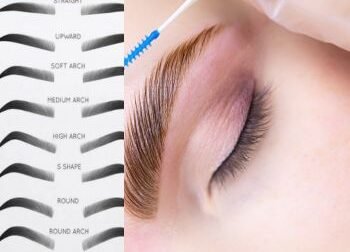Ultimate Guide to Choosing the Best Face Masks for Your Skin
- August 8, 2024
- Uncategorized
- 8 mins read
Ultimate Guide to Choosing the Best Face Masks for Your Skin
When it comes to skincare, face masks are often seen as a luxurious treat, but they can also be an essential part of your routine. With countless options available, choosing the best face masks skin for your skin can be overwhelming. This ultimate guide will help you navigate the world of face masks, ensuring you find the best options tailored to your skin’s needs.
Understanding Your Skin Type
Before diving into the specifics of the best face masks skin, it’s crucial to understand your skin type. Different face masks cater to various skin concerns and types. Here’s a brief overview:
- Oily Skin: Characterized by excess sebum production, leading to a shiny appearance and potential breakouts. The best face masks skin for oily skin help control oil and reduce shine.
- Dry Skin: Often feels tight and may have flaky patches. Masks for dry skin focus on hydration and nourishment.
- Combination Skin: A mix of oily and dry areas. The best face masks skin for combination skin balance oil control and hydration.
- Sensitive Skin: Easily irritated and may react to new products. Gentle masks with soothing ingredients are ideal.
- Acne-Prone Skin: Prone to breakouts and blemishes. Masks for acne-prone skin typically contain ingredients that help clear and prevent acne.
Ingredients to Look For
Choosing the best face masks skin involves understanding key ingredients and how they benefit your skin:
- Hyaluronic Acid: Excellent for hydrating and plumping the skin, making it ideal for dry skin.
- Salicylic Acid: Helps to exfoliate and clear pores, making it suitable for acne-prone skin.
- Clay: Absorbs excess oil and helps to clear impurities, perfect for oily skin types.
- Aloe Vera: Known for its soothing properties, making it a great option for sensitive skin.
- Vitamin C: Brightens the skin and reduces signs of aging, suitable for various skin types.

Choosing the best face masks skin for Your Skin
1. best face masks skin for Oily Skin
If you struggle with excess oil and shine, the best face masks skin for oily skin should focus on controlling oil production and unclogging pores. Clay masks are particularly effective as they absorb excess sebum and help to minimize shine. Look for masks containing ingredients like charcoal, kaolin clay, or bentonite clay.
Additionally, masks with salicylic acid can help to exfoliate the skin and prevent breakouts. Applying these masks once or twice a week can help keep your skin clear and balanced.
2. Best Face Masks for Dry Skin
For those with dry skin, hydration is the key. The best face masks skin for dry skin are packed with moisturizing ingredients such as hyaluronic acid, glycerin, and nourishing oils. Sheet masks and cream masks are excellent choices as they provide an intense burst of hydration.
A hydrating mask with aloe vera or honey can also soothe and soften dry patches. Using these masks regularly can help maintain a plump and radiant complexion.
3. Best Face Masks for Combination Skin
Combination skin requires a balanced approach. The best face masks skin for combination skin address both oily and dry areas. Look for masks that combine hydrating and oil-absorbing properties.
Clay masks with added moisturizers or exfoliating masks that contain gentle acids can be effective. Applying different masks to different areas of your face, a technique known as multi-masking can help address various concerns simultaneously.
4. Best Face Masks for Sensitive Skin
Sensitive skin needs gentle care. The best face masks skin for sensitive skin are those formulated with soothing ingredients like aloe vera, chamomile, and calendula. Avoid masks with harsh exfoliants or strong fragrances that can irritate the skin.
Opt for hypoallergenic and dermatologist-tested products to ensure they are gentle on your skin. Calming masks that offer a cooling sensation can help reduce redness and discomfort.
5. Best Face Masks for Acne-Prone Skin
Acne-prone skin benefits from masks that help to clear breakouts and reduce inflammation. The best face masks skin for acne-prone skin often include ingredients like salicylic acid, benzoyl peroxide, or sulfur.
Clay masks are also beneficial as they help to absorb excess oil and unclog pores. Masks with anti-inflammatory ingredients can help reduce redness and swelling associated with acne.
Tips for Using Face Masks
- Patch Test: Always perform a patch test before applying a new mask to your entire face. This helps to ensure you don’t have an adverse reaction.
- Follow Instructions: Adhere to the recommended application time for the best results. Overuse can irritate the skin.
- Frequency: Depending on your skin type and mask type, using a face mask once or twice a week is usually sufficient.
- Cleanse Before Use: Make sure to cleanse your skin before applying a face mask to remove dirt and impurities, allowing the mask to work more effectively.
DIY vs. Store-Bought Masks
Both DIY and store-bought masks have their benefits. DIY masks allow you to customize ingredients based on your skin’s needs, but they may lack the potency of professionally formulated products. Store-bought masks, on the other hand, are often tested for safety and efficacy, offering a wide range of options for different skin concerns.
Final Thoughts
Finding the best face masks skin for your skin involves understanding your skin type, choosing the right ingredients, and following proper application techniques. Whether you’re dealing with oily, dry, sensitive, combination, or acne-prone skin, there’s a mask out there to address your unique needs.
Incorporating the best face masks skin into your skincare routine can provide numerous benefits, from improving hydration to controlling oil and reducing acne. With this guide, you’re well on your way to achieving healthier, more radiant skin.
By carefully selecting the best face masks skin for your skin, you can enjoy the benefits of a more balanced, glowing complexion.
The best face masks for oily skin are typically those that contain clay or charcoal. These ingredients help to absorb excess oil and reduce shine. Masks with salicylic acid can also help prevent and treat breakouts.
For most skin types, using a face mask once or twice a week is sufficient. Overusing masks can irritate the skin, so it’s best to follow the recommended frequency based on your skin type and the type of mask you’re using.
Yes, but it’s important to choose masks specifically formulated for sensitive skin. Look for masks with soothing ingredients like aloe vera, chamomile, or calendula, and avoid those with harsh chemicals or strong fragrances.
Yes, masks that offer a balance of hydration and oil control are ideal for combination skin. Multi-masking, where you use different masks on different areas of your face, can also address various concerns simultaneously.
Clay masks are great for absorbing excess oil, unclogging pores, and reducing shine. They are particularly beneficial for oily and acne-prone skin as they help to purify and detoxify the skin.
Yes, DIY face masks can be customized to suit your skin’s needs. However, they may lack the potency and safety testing of professionally formulated products. Ensure you use fresh, clean ingredients and perform a patch test to avoid adverse reactions.
Understanding your skin type and its specific needs is key. Look for masks with ingredients that address your concerns—hydrating masks for dry skin, clay masks for oily skin, and soothing masks for sensitive skin.
Yes, masks containing ingredients like salicylic acid, benzoyl peroxide, or sulfur can help treat and prevent acne. Clay masks are also effective in controlling oil and clearing pores, which can reduce acne.
Before applying a face mask, cleanse your skin to remove dirt and impurities. This helps the mask penetrate better and work more effectively. Follow the instructions for application time to avoid irritation.
Sheet masks can be very effective, especially for hydration and soothing. They are easy to use and provide a concentrated dose of ingredients. However, the effectiveness depends on the ingredients and your specific skin needs.



